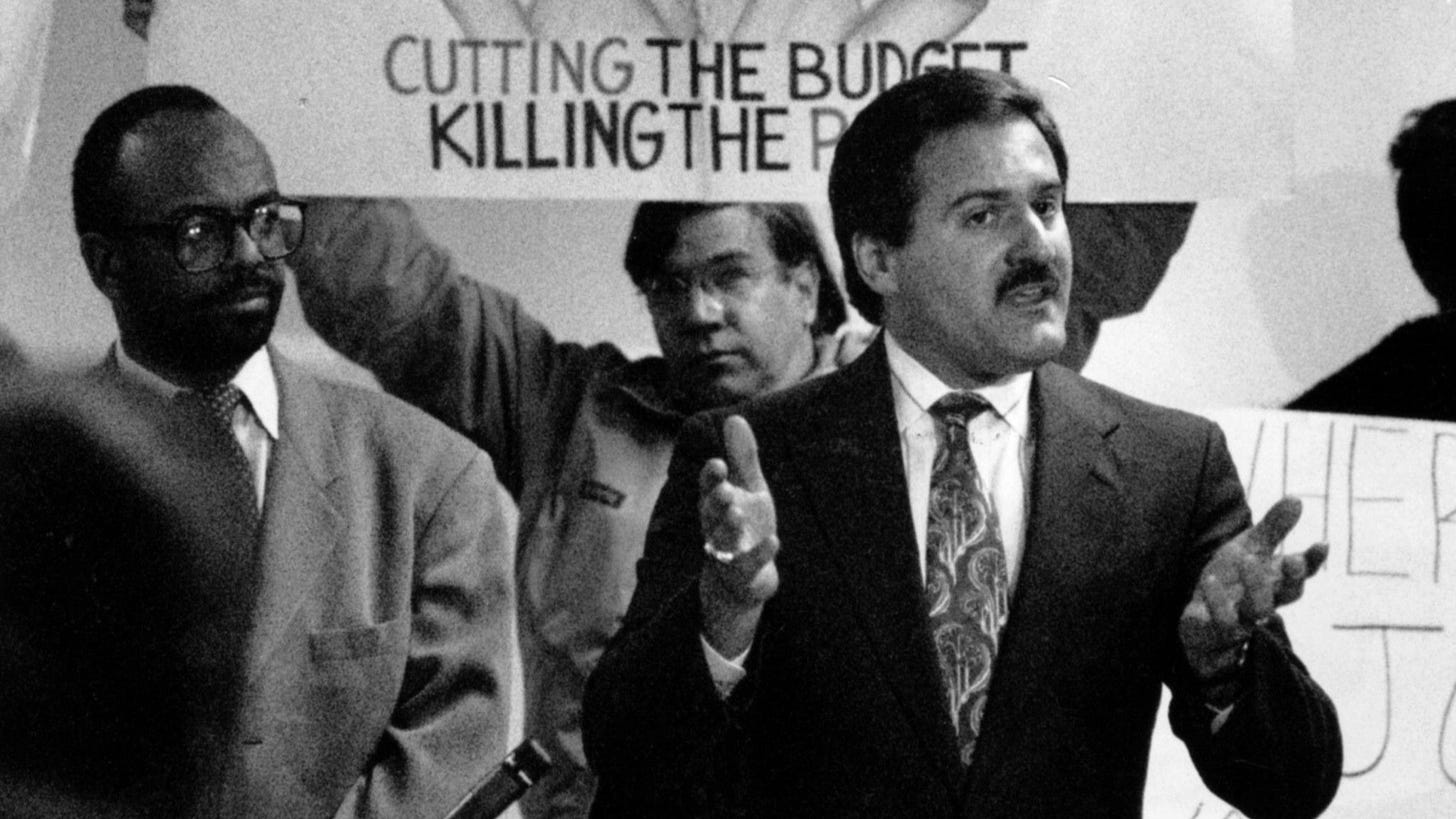THE ILLINOIZE: Thursday Free for All...Pritzker signs SAFE-T Act fix...Gov opens door to cannabis delivery...Financial doomsday for RTA?...Remembering Gary LaPaille
December 8, 2022
Good morning, Illinois.
If you missed our conversation with incoming House Republican Leader Tony McCombie yesterday, you can watch it here.
If you haven’t seen, Deb Conroy has resigned as State Representative to take on the gig as DuPage County Board Chair. I’m checking to be sure, but I would expect Diane Blair-Sherlock, who won the race to replace Conroy, will get a few days head start.
UPDATE: Blair-Sherlock was sworn in last night. Picture courtesy of DuPage County Dem Chairman Ken Mejia-Beal:
Don’t forget, we’re offering a 7-day trial for new paid subscribers. Just click below to join us.
Let’s get to it.
YOUR THURSDAY FREE FOR ALL
(note: we’re not responsible for paywalls and restrictions from other news outlets)
Gov. J.B. Pritzker signs amendment to criminal justice overhaul weeks before cash bail set to end (Chicago Tribune)
Gov. J.B. Pritzker on Tuesday signed into law changes to a controversial criminal justice overhaul that will eliminate cash bail beginning Jan. 1, making good on assurances he gave during his successful reelection campaign that the measure would be tweaked.
Democrats in the General Assembly approved the changes last week during their final session of the year, while Republicans continued to decry the law as a threat to public safety. The GOP made its opposition to the law one of the main themes of the just-completed campaign season in which voters rejected all GOP candidates for statewide office and left the party in superminority status in the legislature.
“I’m pleased that the General Assembly has passed clarifications that uphold the principle we fought to protect: to bring an end to a system where wealthy violent offenders can buy their way out of jail, while less fortunate nonviolent offenders wait in jail for trial,” Pritzker said in a statement Tuesday.
The governor said repeatedly during the campaign that he believed changes to the law, which he signed in early 2021, were necessary, while offering few specifics on what needed to be done.
Unlike his signing of the original measure, known as the SAFE-T Act, in a public ceremony, Pritzker announced Tuesday’s signing in a news release.
The changes to the law, which were approved with the support of victims’ rights groups and without opposition from groups representing law enforcement and prosecutors, clarify the process for shifting from the cash bail system to one that sets out specific criteria for judges to determine whether defendants should be incarcerated while awaiting trial.
The amendment also clarifies the standards that judges must follow when considering whether a defendant presents a danger to the public, and adds several offenses, among them aggravated robbery, second-degree murder and home invasion, for which judges can detain a defendant if they’re deemed a threat to the community or another person.
Defendants charged with crimes before Jan. 1 will have the option to remain under the old bail system or be moved to the new system. To ease the burden on the court system, the new measure sets out specific time frames for detention hearings for those shifting to the new system.
Related: Gov. JB Pritzker signs SAFE-T Act amendments into law ahead of cash bail ending Jan. 1 (State Journal-Register)
Pritzker signs changes to SAFE-T Act’s cash bail provisions (Capitol News Illinois)
Opinion: However ill-advised, SAFE-T Act still makes history (Champaign News-Gazette)
Pritzker opens door to weed delivery (Crain’s Chicago Business)
Gov. J.B. Pritzker says cannabis delivery, which is currently illegal in Illinois but offered in other states, is an idea worth considering.
“At first blush, as long as it’s regulated—and as long as we make sure the person who is ordering it gets it, and they’re legally allowed to—it would seem to me the same as someone coming into a store,” Pritzker said when taking questions during a visit to Ivy Hall, a dispensary recently opened in Bucktown.
Pritzker wasn’t advocating for delivery, and he said Illinois “should examine the impact” in other states that allow it.
Pritzker stopped by Ivy Hall, which is one of the first of the 192 new retail licensees to open its doors. Getting new owners, especially people of color, was a key goal of legalizing recreational marijuana under so-called social equity provisions in the licensing framework.
The first licenses were supposed to be issued in May 2020. But it took two years, because of COVID delays and litigation, setbacks that drew criticism from frustrated license applicants.
Pritzker defended the state’s licensing plan as deliberate and suggested the process, while slowed by litigation, might ultimately help social equity applicants.
Related: Pritzker opens door for cannabis delivery in Illinois while touring 1st 'social equity' dispensary (WLS-TV)
The wild ride for weed companies isn’t over (Crain’s Chicago Business)
RTA warns of fiscal 'cliff,' hints at sales tax expansion and other changes (Daily Herald)
To combat a fiscal "cliff" forecast for public transit in 2026, the Regional Transportation Authority is recommending a menu of options that include increasing or expanding the sales tax.
The agency on Monday released its draft 2023 strategic plan, "Transit is the Answer," and opened a public comment period that extends through Jan. 9.
Along with revenues, the report explores systemwide changes to improve transit. Ideas include offering free or reduced fares for low-income residents, using transit as a tool to combat climate change, and making trips on Metra, Pace and the CTA safer.
When COVID-19 hit, ridership and fare revenues plummeted at all three agencies, and 2019 norms won't return for the foreseeable future, with an estimated shortfall of $730 million in 2026.
The RTA argues against slashing service or draconian fare hikes to bridge the gap. Instead, some suggested solutions include: increasing the RTA sales tax that helps pay for buses and trains; increasing the gas tax; and expanding the RTA sales tax onto services.
If extra revenues do materialize, the draft notes, it could allow reduced or free rides for low-income passengers, youths, students "or even fare-free transit service."
Related: Editorial: Impending 'fiscal cliff' at RTA requires more innovation than just creative ways to increase taxes (Daily Herald)
Gary LaPaille, former state senator, Democratic Party of Illinois chair, Madigan staffer, dies at 68 (Chicago Sun-Times)
Gary LaPaille launched a career in politics and government in Chicago, Springfield and Washington while in high school, working weekends in the 13th Ward Democratic organization office on the city’s Southwest Side, where he was raised.
His 1988 marriage to Christine Freveletti was rooted in politics. Their romance blossomed while Mr. LaPaille was chief of staff to then-House Speaker Michael Madigan, a Democrat who ran the 13th Ward organization, and Christine was the chief of staff to then-Minority Leader Lee Daniels, a Republican.
Christine LaPaille said the relationship ripened when they both were in Seattle attending a meeting of the National Conference of State Legislatures and Mr. LaPaille suggested they skip out and take a ferry to Vancouver. Still, “we were opposite chiefs. We ran campaigns against each other.”
Mr. LaPaille died Dec. 1 at his home in Potomac, Maryland, a Washington suburb, after battling amyotrophic lateral sclerosis, Christine LaPaille said. He was 68.
Mr. LaPaille worked in various positions for Madigan, rising to be his powerful chief of staff for a dozen years. With Madigan’s support, Mr. LaPaille became the chairman of the Democratic Party of Illinois, running the party between 1990 and 1998.
SOME TOP LINKS FROM THE WEEK SO FAR
Gun Rights Advocates Say Proposed Assault Weapon Ban "Absolutely Unconstitutional"
Barickman Resigning from Senate, Says Making Young Family His "Priority"
JOIN US














